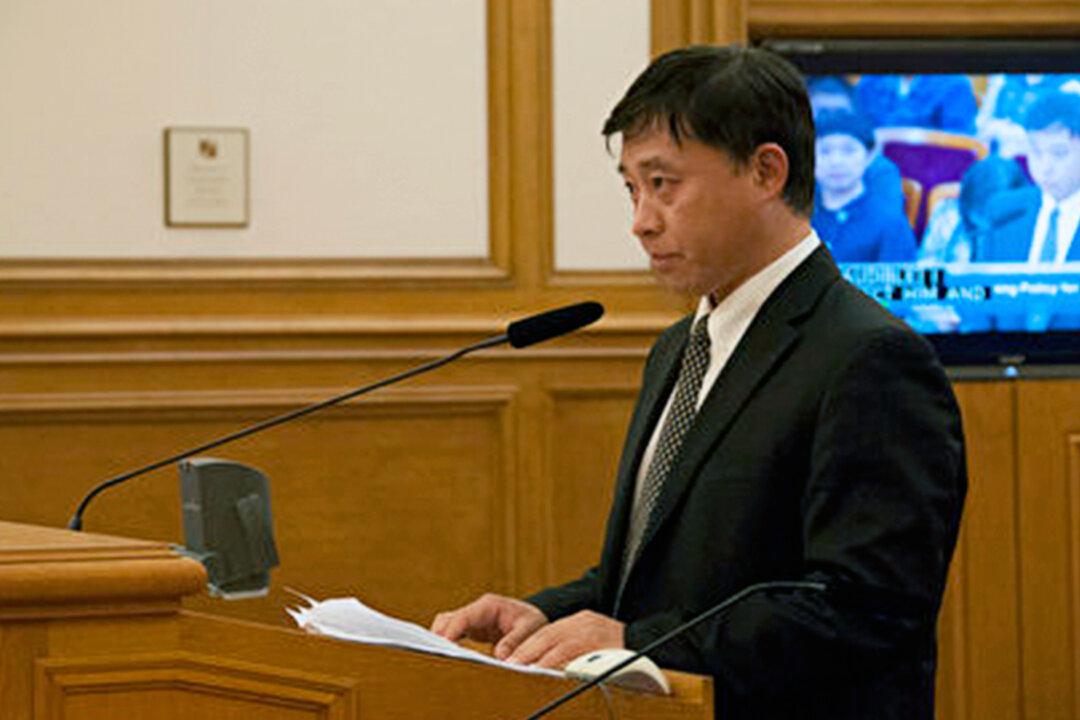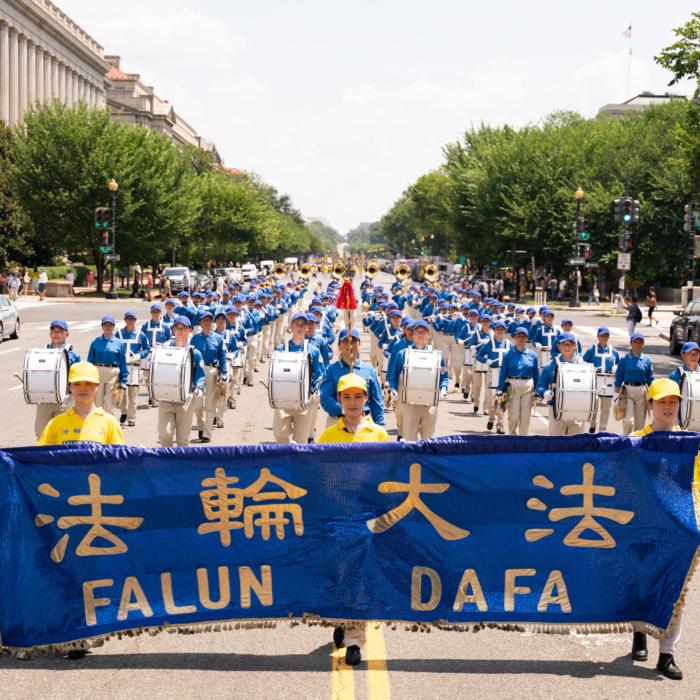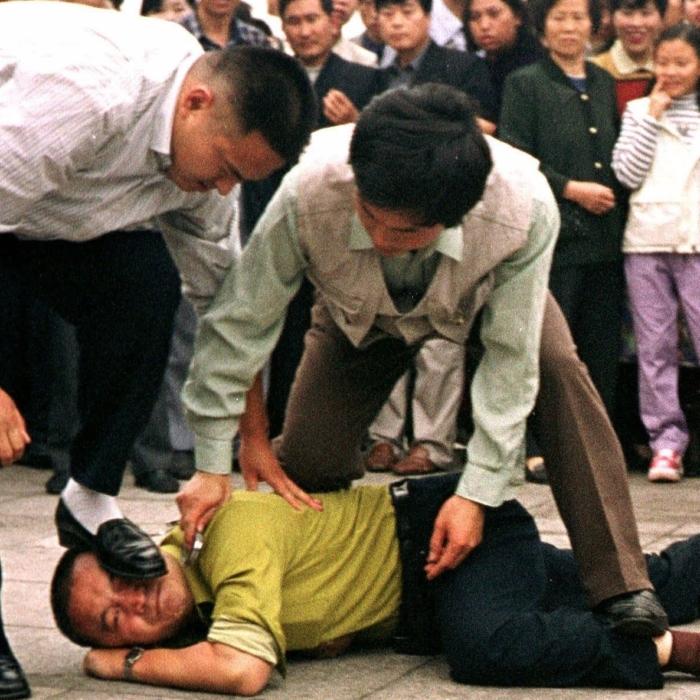Bu Dongwei holds the core American value of freedom deep in his heart. He fled from persecution in China back in 2008 and knows firsthand how far a totalitarian regime will go when it perceives an ideological threat to its grip on power.
The sole reason for Mr. Bu’s arbitrary detention and persecution was that he’d refused to give up his faith and had written a letter to communist authorities asking them to reconsider their violent suppression of the Falun Gong self-cultivation system. Hundreds of thousands of adherents were appealing to the Chinese Communist Party (CCP) in 1999, but the regime had decided to eliminate the faith that is rooted in ancient traditional Chinese culture, and launched a persecutory campaign targeting around 100 million law-abiding citizens.
Since coming to the United States, he has found his purpose: advocating for freedom and alerting Americans to the threats of communism.
“Communism is spreading in the United States. We should be aware and safeguard the freedom of America,” Mr. Bu, 55, a former government project coordinator at the Beijing office of The Asia Foundation, told The Epoch Times.
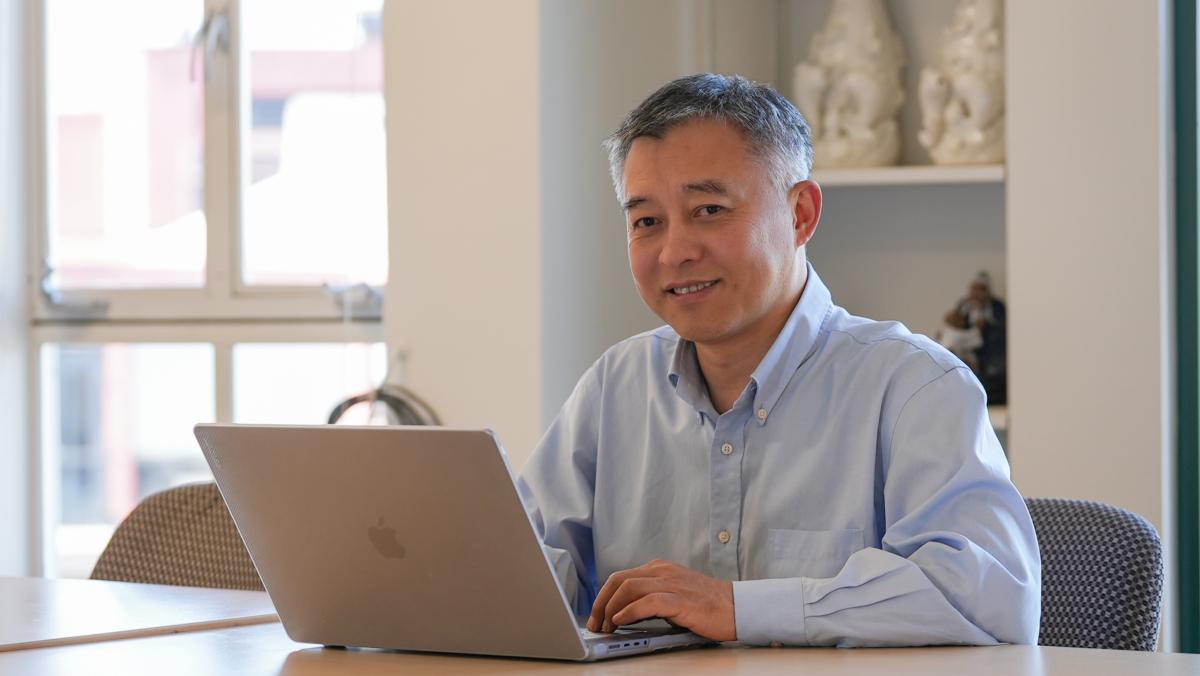
“Americans should be very wary of the CCP … not only because of espionage but also because they are spreading propaganda. The Chinese regime is trying to infiltrate the United States in many different ways. They have a lot of spies here working to undermine the foundation of the country. Also, they’re working to steal technology and other things from the United States. The U.S. government should completely reject the CCP.”
“In American high schools, students can’t learn about how evil communism is. They don’t know the history of communism,“ he said. ”Americans, especially the young generation, should read more about communism—the true story of the communist countries, not only of China but also of North Korea and others.”
He added that mainland China has lost its true cultural heritage after undergoing the Cultural Revolution under communist rule. “More and more mainland Chinese people are realizing what horrible things communism has done to their country, which has a glorious history. They are looking forward to getting rid of communism and enjoying the spirit of freedom like other countries,” he said.
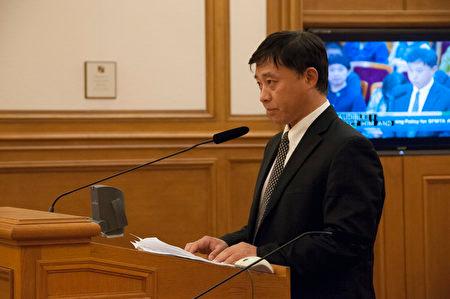
The Early Days in China
Mr. Bu and his wife, Lou Hongwei, who earned her Master of Law from Beijing University and Master of Real Estate Finance from the UK’s Cambridge University, began practicing Falun Gong in 1996. He always loved martial arts and Tai Chi and connected strongly with Falun Gong’s mind-body cultivation and moral philosophy grounded in the principles of truthfulness, compassion, and tolerance.He says during the early days, thousands of people openly and freely practiced Falun Gong’s meditative exercises in parks in China. Nobody organized them; they came voluntarily, did the exercises, and left peacefully, and some even helped clear public parks of any litter that was there prior to their arrival.
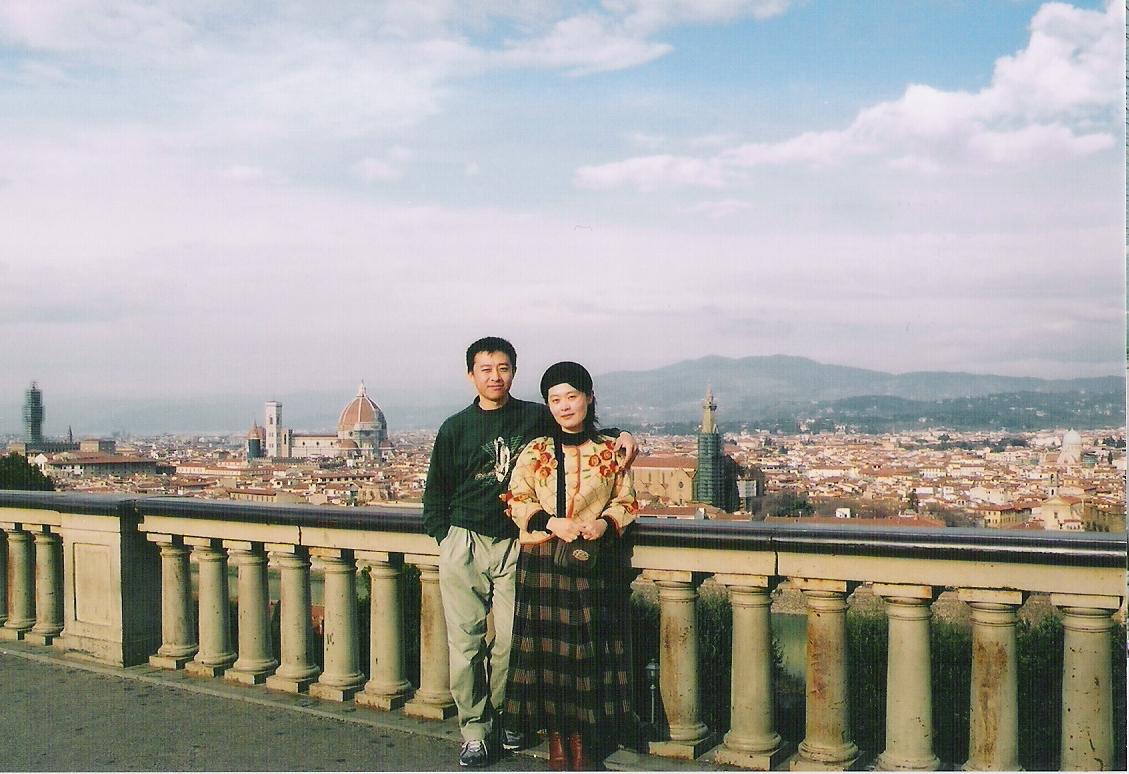
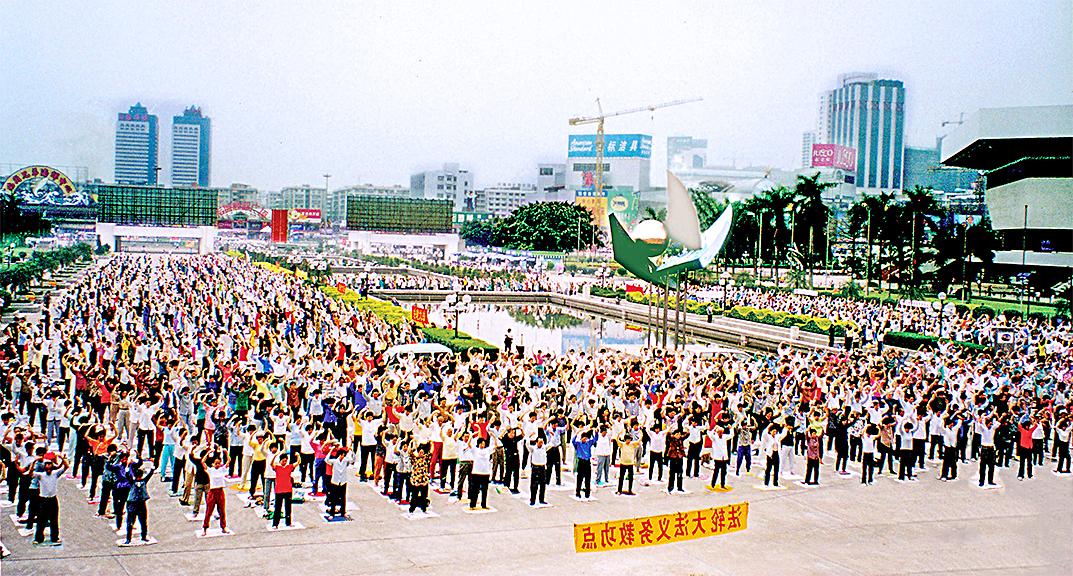
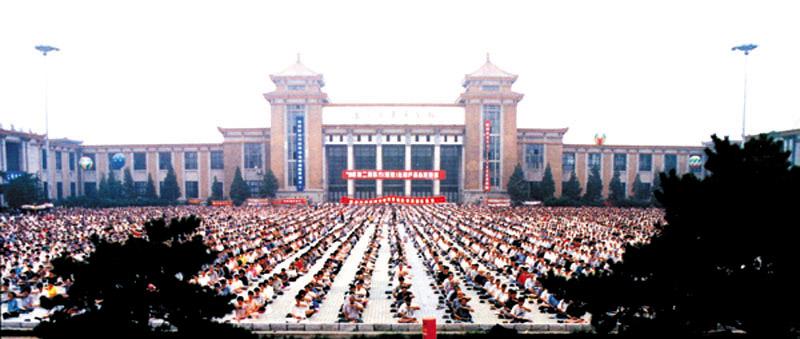
Mr. Bu later saw the news coverage on CNN after returning home from Zhongnanhai.
“We could still watch CNN at that time from home,” he said. “CNN was banned later on for common people, you know, in residential areas, and was only available in four or five-star hotels. I saw the report and realized something could happen later. But in early May 1999, I don’t remember which day, the People’s Daily [the official newspaper of the CCP] said the people who went to Zhongnanhai won’t get in trouble. That’s what the CCP propaganda said. I was still suspicious though, because we could see things changing around us after April 25.”
He recalled that post-April 25 they were still able to do the exercises in parks, but they would notice one or two “plainclothes policemen or some people from the government” monitoring them. “They just stood there, like 10 to 20 meters [32 to 65 feet] away from us, and didn’t say anything—just kept looking at us. The atmosphere had changed, it was different,” he said.
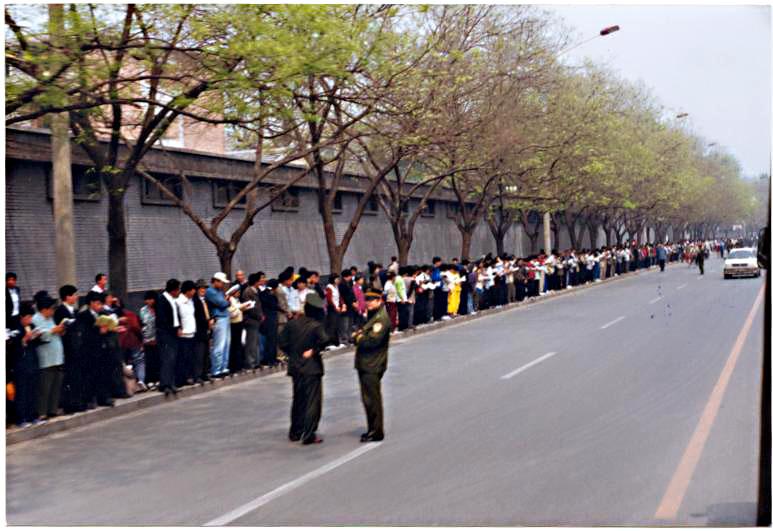
By July 20, 1999, the CCP officially made its stance clear and launched a nationwide violent campaign to eliminate the spiritual practice; a persecution that continues to this day.
“I heard about the ban on the morning of July 21,” he said. “My wife and I then went to the petition center again. There were many practitioners there. We were taken on a bus to a large stadium where thousands of other practitioners were. They registered almost every one of them. Somehow my wife and I managed to just walk away from that place.”
The Persecution
The couple were first arrested in 2000 and sentenced to one year in separate labor camps in Beijing after Mr. Bu wrote to Chinese officials requesting them to stop persecuting Falun Gong.Facing pressure and harassment after his release, Mr. Bu went to Hong Kong for higher studies. By 2004, he was working for The Asia Foundation and returned to Beijing, coordinating the “first ever collaboration project” between the U.S. Department of Labor and its Chinese counterpart, the Ministry of Labor and Social Security. Two years in, when his team had just finished the midterm evaluation, and “the officials from both sides were happy,” Mr. Bu was arrested one night and was sentenced to two and a half years at the Beijing Tuanhe Labor Camp.
“It was May 19, 2006. Friday. I went back home at around 9 o‘clock. Someone knocked on my door. … Seven to eight policemen just rushed in and asked me, ’You have Zhuan Falun [the main text of Falun Gong]? Did you read it?' They searched my home. They found the books and then took me to the detention center,” he said.
“By that time, owning any Falun Gong material was like a crime in China.”
At that time, Ms. Lou was studying at Cambridge University. She moved to the United States to seek help from The Asia Foundation and raise awareness about her husband’s case.
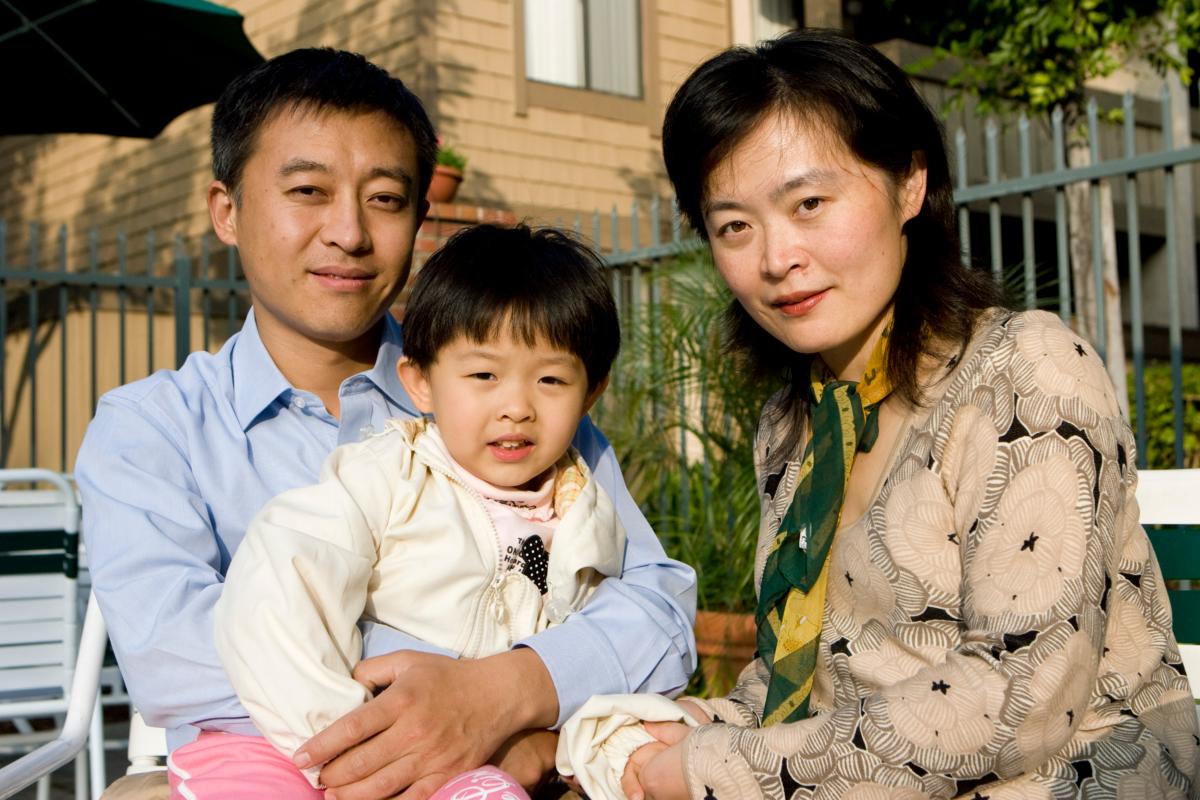
“I knew something may be happening somewhere,” Mr. Bu said. “When I was in the labor camp, only Falun Gong practitioners were taken to a hospital for a blood test every three months, but nobody informed us of the test results. I believe this was done so they could acquire samples, to determine the blood types available to them.

“I had no idea about Amnesty International because I didn’t receive even one of the letters. Only after I came to the United States, did I learn about them,” he said. “[But] the labor camp officials knew I had been noticed by the international community. They didn’t torture me like they did the first time in the labor camp, in the year 2000. So, if people of the world pay attention to prisoners of faith, they help them become safer in those detention centers.”
In the labor camp, Mr. Bu was still forced to sit on a small stool and work for long hours in unhygienic conditions to make “sanitary chopsticks”—the moniker the prisoners used for the dirt-laden chopsticks that were often processed on the facility’s filthy floor and got poked here and there while packing. He was doing forced labor for a “large export and import company” and later on, spotted similar chopsticks in the Congress cafeteria in Washington, D.C.
“When I came to the United States, I went to Congress to visit some congressmen who had helped me. I had lunch at the cafeteria. I told them [about the chopsticks] … they were shocked. Every day we had to work for roughly over 10 hours to finish the quota. It’s like 5,000 chopsticks,” he said.
The Fight for Freedom Goes on
Having regained his freedom, Mr. Bu is now involved in raising awareness about China’s human rights issues and the threat the communist regime poses to the whole world.As a Chinese refugee, he hopes to remind Americans to cherish and respect their hard-won freedom. He says that “most Americans take their freedom for granted,” and they may not be aware that many people around the world cannot enjoy freedom as they do.
He cited the 1967 speech of then-governor Ronald Reagan, who later served as the 40th president of the United States, in which Reagan said that freedom is “never more than one generation away from extinction” and “it must be fought for and defended constantly by each generation.”
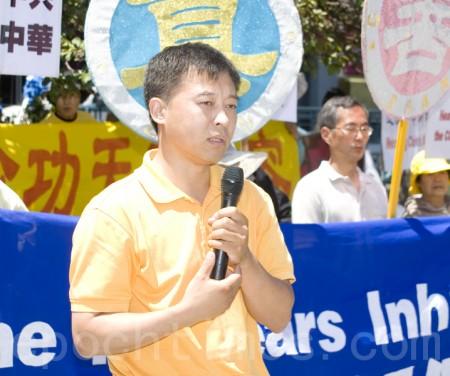
Mr. Bu said: “The core American values of freedom also include freedom of speech, freedom of belief, and freedom from fear. These are very important because, with freedom of speech, we can speak without being afraid that the police will come knocking on the door in the middle of the night. And we can practice our religion, no matter what our beliefs.
“This is very precious to me—especially because I’ve experienced being arrested just because of my faith.”

